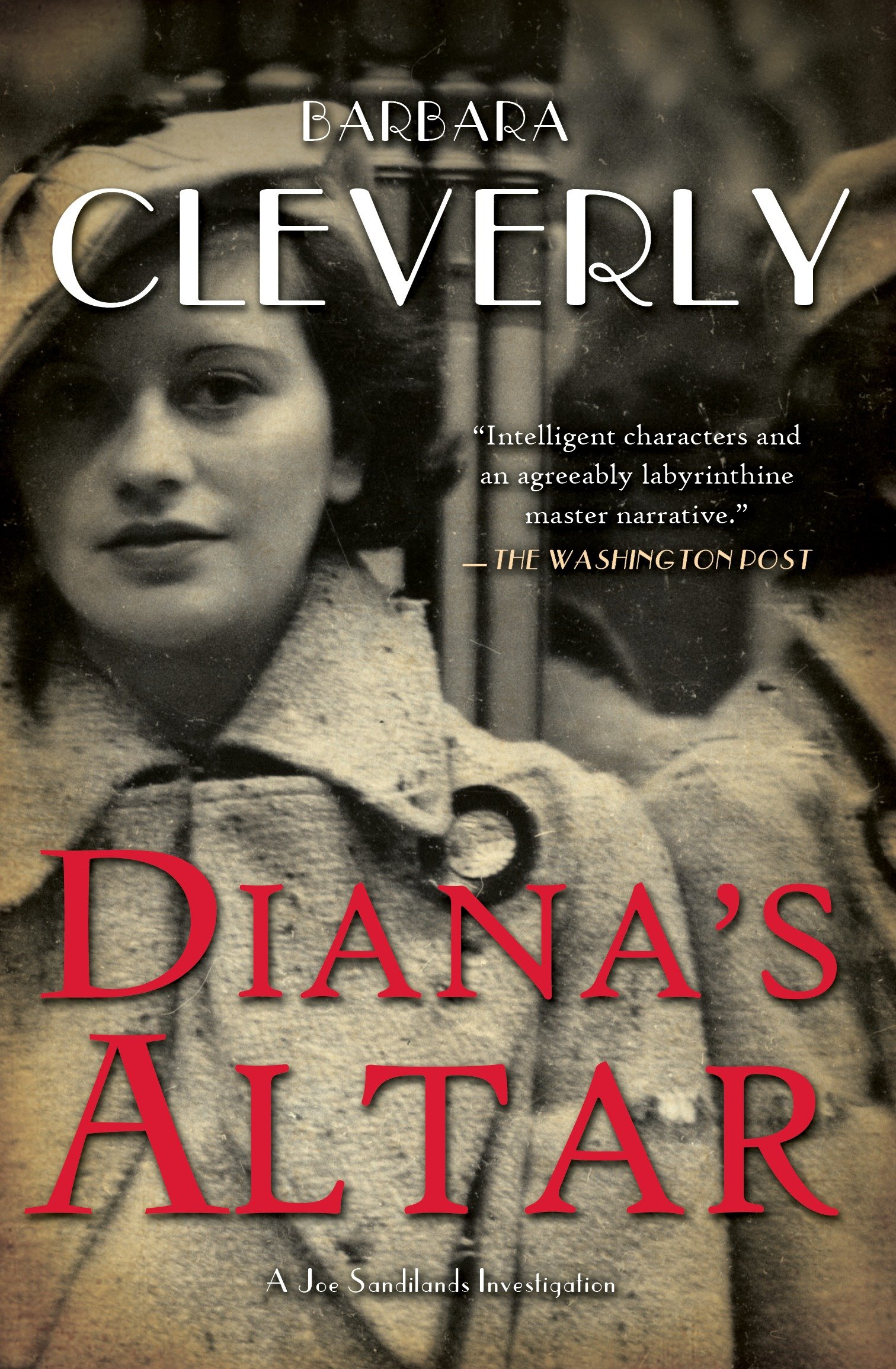Description
Cambridge, 1933. On All Hallows’ Eve, in a candlelit pew in ancient All Hallows Church, Doctor Adelaide Hartest witnesses a stranger’s dying moments. Adelaide is just in time to hear his final confession: that he has plunged the dagger into his own chest, and that his death will be a suicide, despite its suspicious appearance.But his confession isn’t enough to halt an investigation. The victim, it is revealed, is known to Scotland Yard, and his death is a matter of national concern. Assistant Commissioner Joe Sandilands is sent up from London to discover the truth. Thrown into a deadly ring of cloak-and-dagger intrigue and high-society hedonism, Sandilands chases a phantom killer through Cambridge’s aristocracy, intelligentsia, cutting-edge researchers, and a clandestine ring of female spies. What secret was the dead man hiding, and what is at stake?
Additional information
| Weight | 0.29 kg |
|---|---|
| Dimensions | 2.54 × 12.7 × 19.05 cm |
| PubliCanadanadation City/Country | USA |
| Author(s) | |
| Format | |
| language1 | |
| Pages | 400 |
| Publisher | |
| Year Published | 2017-4-25 |
| Imprint | |
| ISBN 10 | 1616958057 |
| About The Author | Barbara Cleverly was born in the north of England and is a graduate of Durham University. A former teacher, she has spent her working life in Cambridgeshire and Suffolk; she now lives in Cambridge. She is the author of thirteen books in the Joe Sandilands series, including The Last Kashmiri Rose, The Blood Royal, Not My Blood, A Spider in the Cup, and Enter Pale Death. |
Praise for Diana's Altar"There are so many aspects of Diana’s Altar to celebrate, chief among them Cleverly’s intelligent characters and an agreeably labyrinthine master narrative. Adding to the fun is Cleverly’s gift for generating spirited dialogue, peppered with period slang." —The Washington Post"The quiet English college town of Cambridge in the late fall of the Depression year of 1933 seems to be a curious setting for a tale of murder and espionage. But somehow, British novelist Barbara Cleverly makes it work in Diana’s Altar . . . Sandilands suspects murder—and goes on to prove it, tracking down the surprising killer . . . well-done." —St. Louis Post-Dispatch"Sandilands [is] among the most dashing cops of British crime fiction . . . A happy blend of traditional whodunit and espionage thriller, Diana's Altar—the phrase comes from Shakespeare—proceeds with perfect pacing to a frightening climax and a full measure of justice." —Richmond Times-Dispatch "The fast-paced plot has a compelling rhythm. Like all of Cleverly’s novels—she also writes the Laetitia Talbot Mysteries—there are well-developed characters, an authentic setting, and a few classical allusions; but it is Joe Sandilands’ likeability that brings readers back. Recommended for anyone who loves historical mysteries." —The Historical Novel Society"One of Barbara Cleverly's more complex plots, Diana's Altar is a legitimate page turner and a novel that will delight all the author's ardent fans and create new readers as well."—BookLoonsPraise for Barbara Cleverly“Despite her mastery at vivid scene-setting, Cleverly never loses sight of the historical puzzle that is central to her story. Simply put, it’s a stunner.”—The New York Times Book Review“Fans of P.D. James, take note: Here’s a worthy colleague.”—The Seattle Times“Stylish and intricate . . . Cleverly has perfect pitch for period and place, whether her hero is unearthing evil in India, England or France.”—Richmond Times-Dispatch“Cleverly is a terrific writer . . . Fans know that she supplies the glamour as well as the grime, and she’s one of the most adept puzzle-plot-makers now working. The clues are all there. But you won’t guess who it is until she gives you the final word.”—The Globe and Mail“The appearance of a Joe Sandilands book is always welcomed by fans of this intelligent and gripping series.”—San Jose Mercury“Excellent . . . Golden age fans who appreciate deceptive storytelling enhanced by the kind of in-depth characterization lacking in Agatha Christie will be more than satisfied.”—Publishers Weekly, Starred Review |
|
| Excerpt From Book | Chapter 1Cambridge: Late October, 1933Adelaide Hartest reminded herself sternly that she was a doctor. A doctor of medicine. A scientist, she would have claimed—one who believed in evidence gathering and cause and effect. In reason. So why was she standing here at dawn, one indecisive hand on the latch of the gate of All Hallows Church, suffering a very particular set of symptoms? Her mouth was dry, her hands were trembling, her teeth were trying, unbidden, to hold their own chattering conversation and, interestingly, the hairs really had risen at the nape of her neck. Briefly she explored the inches of skin between her hat brim and the collar of her cape. Her fingers encountered warm dampness and a palpable, unnatural bristliness there. She pulled up her woolly scarf to fill the gap and looked about, seeking some external reason for the current of cold air that was trickling down her spine. There was no sign of a breeze; the few golden leaves left clinging to a solitary ash tree hung motionless. Homeostatic mechanisms, of course! This was merely Nature clicking in faithfully after the brisk cycle ride back from a grim all-night stint. None grimmer. Emotionally disturbed, professionally challenged and physically threatened by her case, young Dr. Hartest had expressed her frustrations by vigorously pedalling over country roads in the dark back to Cambridge. She’d become overheated and her body was responding obligingly by kicking in with its cooling-down devices. Simple. No—that wouldn’t quite do. Adelaide was trained never to accept the immediately obvious without question. Autonomic body temperature adjustments didn’t go halfway to accounting for the mental and physical state she was experiencing. She made her diagnosis: good old-fashioned fear. It wasn’t a feeling that had troubled her often in her twentyseven years. Standing almost six feet tall in her silk stockings with a head of hair that impressed by its auburn luxuriance, Adelaide was blessed with a confidence that rebuffed danger. At the sight of her smile and her long stride, Danger crossed the road and slunk past on the opposite side. Danger with a human face, at any rate. But what natural cause of terror was there—other than human—that might possibly lie in wait to ambush her? Earthquakes, floods and volcanic outpourings were completely unknown in the centre of civilised Cambridge at six o’clock on an autumn morning. She was alone here with her turbulent thoughts, come to seek a solace which most probably wasn’t available to her. The Market Place, only yards away, was silent. None of the traders had arrived to set up stall yet. No barrows rumbled over the cobbles, no merry banter rang out. She hadn’t even spotted the beat bobby who usually lurked under the gas lamp by King’s College, lighting up a Woodbine and ready to greet her with a cheeky, “Morning, Doc! Give it ten! You’re winning!” when she cycled by. The crowding medieval rooftops enclosing the tiny square where she was standing were taking on a sharp silhouette against the brightening sky. The ancient church of All Hallows, squat and square, blotched by damp, bore witness to the passage of every one of its thousand years. It conjured up the image of a discoloured tooth shakily attached to decaying roots, but having nerve connections all too vigorous and snaking down to draw strength from some deep past. Adelaide reined in her imagination. Fatigue and anger were weakening her defences against fanciful thoughts. She was in the wrong place at an inconvenient time and ought not to be loitering here. Though she had by now identified the source of her unease. The poisonous miasma floating, undetected by the usual senses, all about her—it was All Hallows. The church building itself. It was resenting and resisting her intrusion. If there were few willing to penetrate the first defences of evergreen foliage that encircled the ancient stones, there were fewer yet who would enter the dim interior in spite of the enticements advertised on a billboard at the gateway: the skull of Saint Ethelbert, a page from a prayer book of Queen Isabella and an oak lectern once pounded by the fist of a dissenting preacher. Adelaide found their lure perfectly resistible. She had other business at All Hallows. She was intent on having a serious word with the Lord. Bearding the Almighty in his den. She reasoned that, just as she listened with care to the patients who made their way into the privacy of her consulting room, confident that they would be telling her nothing less than the truth and expecting nothing less than an honest answer in return, the Lord—if he existed—would show similar good manners. Consultation was a game for two players and imposed its own etiquette. In the stillness of a deserted church in front of his own altar, Adelaide had initiated such conversations many times before. God, in her simple estimation, was a Gentleman. If he wasn’t, she couldn’t be doing with him. She had always left whatever sacrosanct surroundings she had chosen to witness her outpouring of emotion feeling more at peace with herself. Unwelcome truths and difficult decisions were more swiftly dealt with on one’s knees on a lumpy hassock. There were two responses to fear: flight or fight. Rush for the cliff ’s edge or loosen your sword in your scabbard and take a stand. She had a decision to make, and her selfimposed time limit was almost up. In three hours she would lift the telephone and ask the operator to connect her with a London number. She would wait for the familiar voice, warm and expectant. She would deliver her decision. Her life would change forever. Adelaide never made detours and she never ducked out of any situation. She had playground scars to prove it. She swung the gate open and paused for a moment to take a torch from the pocket of her cape. The battery was running low—she’d almost drained it during her nightmare excursion into the Cambridgeshire countryside—but it clicked on valiantly and the narrow beam lit up the paved path beyond. It had been swept clean of leaves. Visitors were clearly expected. Adelaide decided to take this as an omen. An invitation. Steadily she moved towards the west door. In the English tradition, the House of the Lord was always left unlocked. When she lifted the latch of the heavy oak door and pushed, there were no metallic squeaks to break the silence. It swung open with ease on oiled hinges. Adelaide hesitated, her attention caught by a postcard pinned neatly to the door at eye level. It was handwritten in scholarly calligraphy.All Gallows’ EveTuesday, 31st OctoberVespersBy invitation onlyPlease apply to the Rev. Sweeting for admission.The service will be followed by a symposium onthe darker issues of modern life:* Distrust * Doubt* Depression * Death “Pompous prats!” was Adelaide’s muttered response to this. A group of self-indulgent soul-searchers egging each other on to plumb the depths of melancholy on Hallowe’en? Well, they were just looking for trouble, and she rather thought she was better qualified to comment on the four Ds than any academic sensation seekers. Something about the wording of the announcement struck her as strange. No times were given for the service. Just: Vespers. The evening service. But this was the house of God, open to all at all times, not a private chapel where invitations might be issued to the specially chosen. The Reverend Sweeting seemed to have taken on the role of God’s maître d’hôtel. When she met him, Adelaide would have a question or two to put to the reverend. Crossly, she tugged the card from its moorings and put it in her pocket. Someone should hear about this. Just in case “Vespers” had turned into “Vigil” she put her ear to the door and listened. Bursting in on a coterie of depressed souls further debilitated by a night of philosophising in a minor key was not a tempting prospect. All was silence and she risked peering in. Signalling to her through the musky darkness, a solitary candle flickered a welcome. Soft as a sigh, a breath of air lightly scented with incense invited her inside. |
| series |
Only logged in customers who have purchased this product may leave a review.






Reviews
There are no reviews yet.